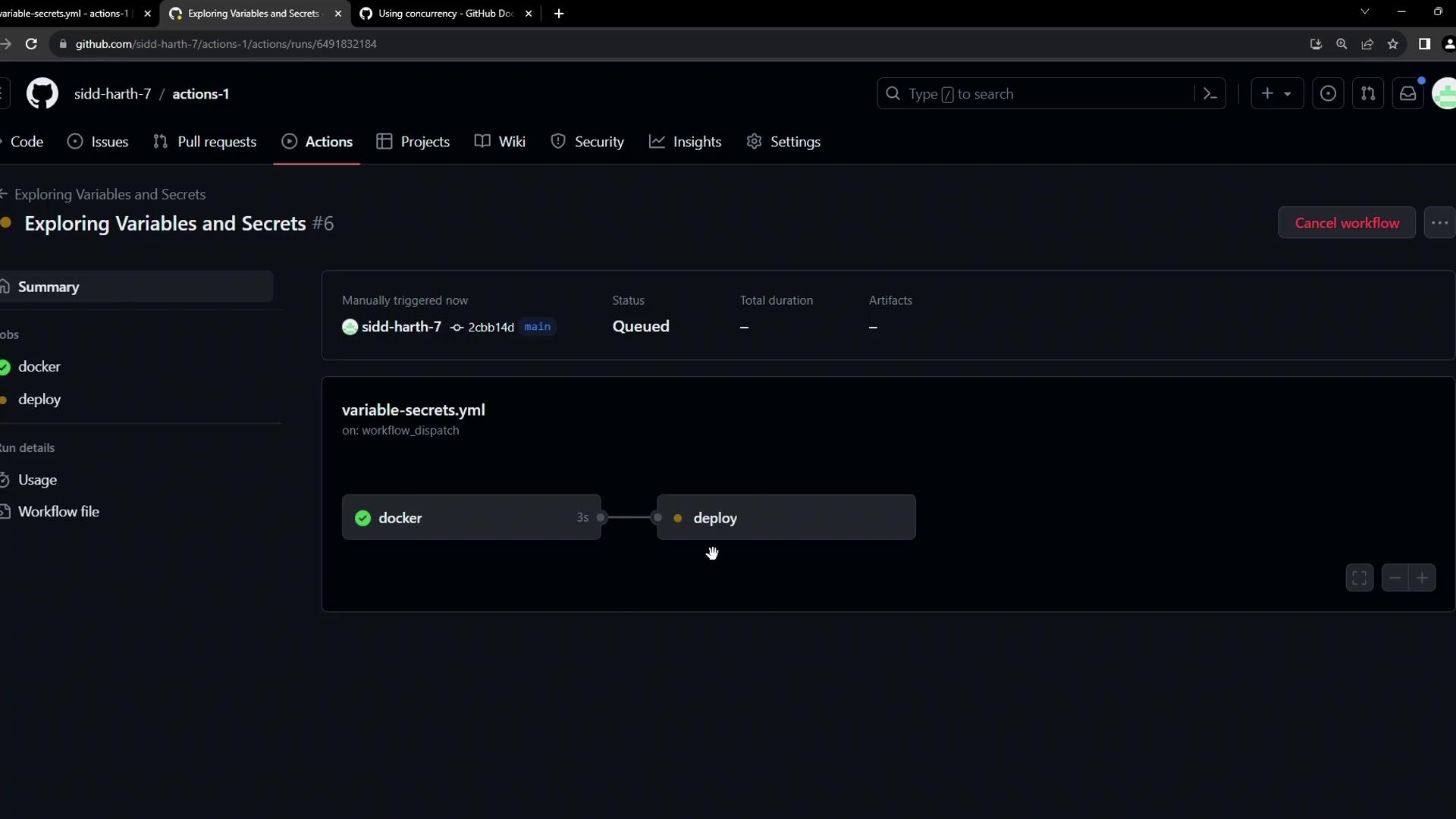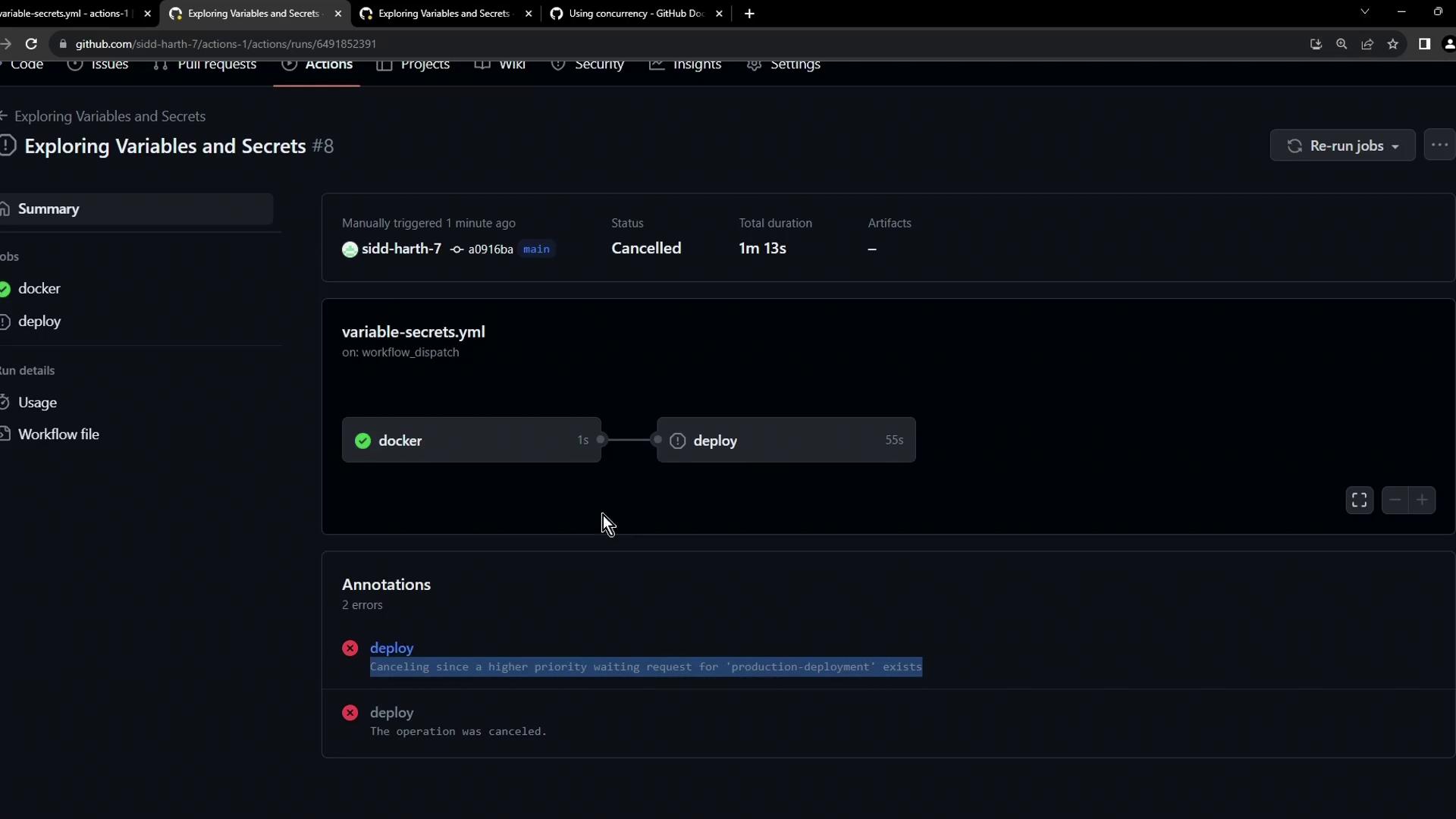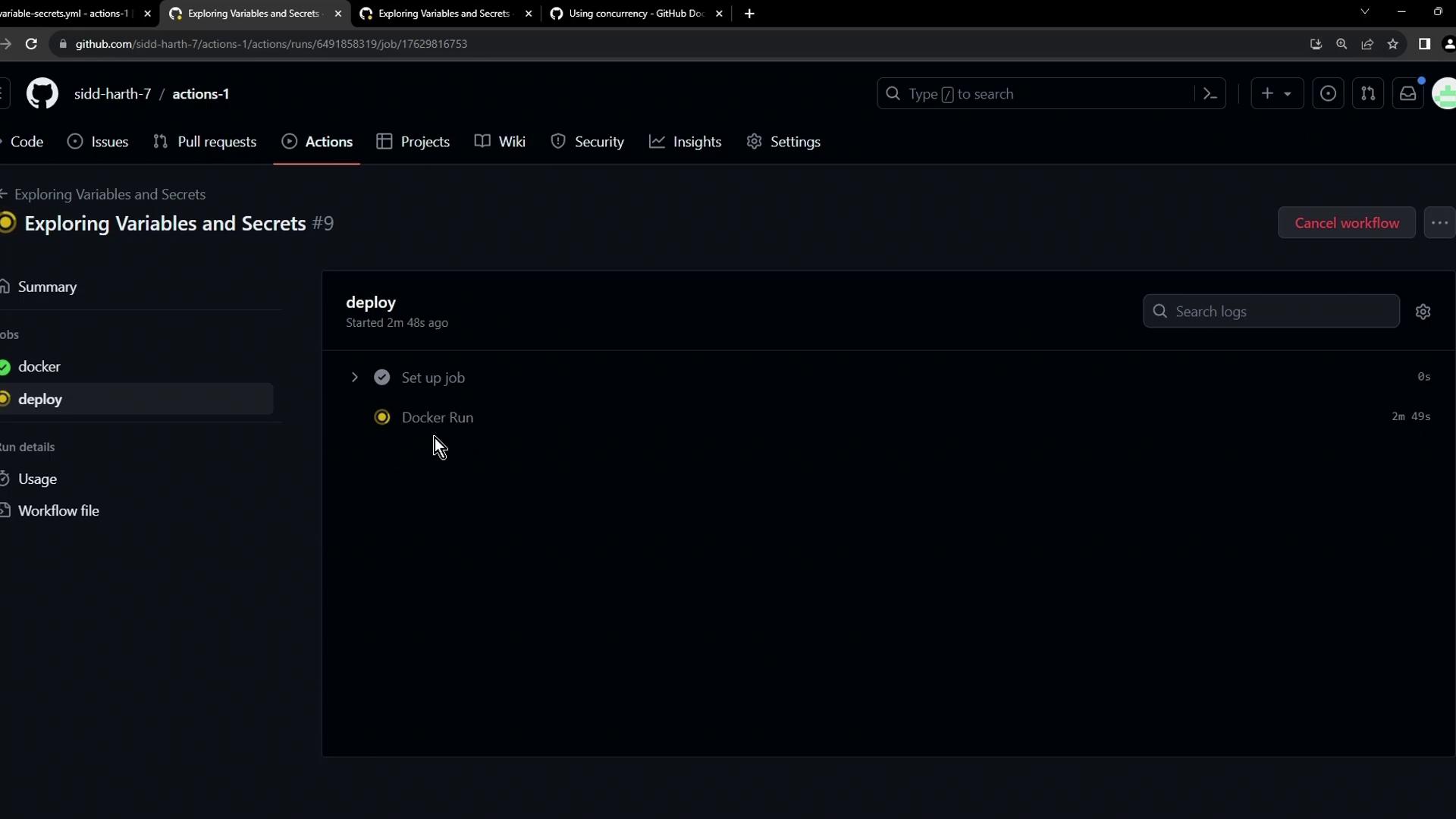GitHub Actions
GitHub Actions Core Concepts
Using Job concurrency
Controlling how jobs run in parallel is crucial for production workflows. GitHub Actions’ concurrency key lets you ensure that only one workflow or job in a specified group runs at a time—preventing resource contention, conflicting deployments, or race conditions.
1. Baseline Workflow: Parallel Jobs
Consider a simple workflow with two jobs:
jobs:
docker:
runs-on: ubuntu-latest
steps:
- name: Docker Build
run: echo docker build -t ${{ env.CONTAINER_REGISTRY }}/${{ vars.DOCKER_USERNAME }}/${{ IMAGE_NAME }}:latest
- name: Docker Login
run: echo docker login --username=${{ vars.DOCKER_USERNAME }} --password=${{ secrets.DOCKER_PASSWORD }}
- name: Docker Publish
run: echo docker push ${{ env.CONTAINER_REGISTRY }}/${{ vars.DOCKER_USERNAME }}/${{ IMAGE_NAME }}:latest
deploy:
needs: docker
runs-on: ubuntu-latest
steps:
- name: Docker Run
run: |
echo docker run -d -p 8080:80 ${{ env.CONTAINER_REGISTRY }}/${{ vars.DOCKER_USERNAME }}/${{ IMAGE_NAME }}:latest
sleep 600s
After you trigger this workflow (e.g., via workflow_dispatch), the docker job runs first. The deploy job then spins up the container and sleeps for 600 seconds:

Without any concurrency settings, multiple runs will queue up and execute deploy in parallel—often not what you want in production.
2. Introducing concurrency
Use the concurrency key to define a group name and control behavior with cancel-in-progress. Here’s how to cancel any in-progress deploy when a new run starts:
jobs:
docker:
runs-on: ubuntu-latest
steps:
- name: Docker Build
run: echo docker build -t ${{ env.CONTAINER_REGISTRY }}/${{ vars.DOCKER_USERNAME }}/${{ IMAGE_NAME }}:latest
- name: Docker Login
run: echo docker login --username=${{ vars.DOCKER_USERNAME }} --password=${{ secrets.DOCKER_PASSWORD }}
- name: Docker Publish
run: echo docker push ${{ env.CONTAINER_REGISTRY }}/${{ vars.DOCKER_USERNAME }}/${{ IMAGE_NAME }}:latest
deploy:
needs: docker
concurrency:
group: production-deployment
cancel-in-progress: true
runs-on: ubuntu-latest
steps:
- name: Docker Run
run: |
echo docker run -d -p 8080:80 ${{ env.CONTAINER_REGISTRY }}/${{ vars.DOCKER_USERNAME }}/${{ IMAGE_NAME }}:latest
sleep 600s
Note
The group value can include {{ github.ref }}, {{ github.sha }}, or environment variables to make it unique per branch or environment. See workflow syntax: concurrency.
When a new run starts, any in-progress deploy in production-deployment is canceled:
Error: The operation was canceled.

3. Comparing cancel-in-progress Options
| Setting | Behavior | When to Use |
|---|---|---|
| cancel-in-progress: true | Cancels any in-progress run | Always pick the latest deployment; short-running tasks |
| cancel-in-progress: false | Queues new runs until current finishes | Ensure every run completes; long migrations or audits |
4. Queuing New Runs (No Cancellation)
If you’d rather wait for the current deploy to finish, set cancel-in-progress: false:
jobs:
docker:
runs-on: ubuntu-latest
steps:
- name: Docker Build
run: echo docker build -t ${{ env.CONTAINER_REGISTRY }}/${{ vars.DOCKER_USERNAME }}/${{ IMAGE_NAME }}:latest
- name: Docker Login
run: echo docker login --username=${{ vars.DOCKER_USERNAME }} --password=${{ secrets.DOCKER_PASSWORD }}
- name: Docker Publish
run: echo docker push ${{ env.CONTAINER_REGISTRY }}/${{ vars.DOCKER_USERNAME }}/${{ IMAGE_NAME }}:latest
deploy:
needs: docker
concurrency:
group: production-deployment
cancel-in-progress: false
runs-on: ubuntu-latest
steps:
- name: Docker Run
run: |
echo docker run -d -p 8080:80 ${{ env.CONTAINER_REGISTRY }}/${{ vars.DOCKER_USERNAME }}/${{ IMAGE_NAME }}:latest
sleep 600s
The second workflow’s deploy job will wait in the Waiting state until the first completes:

Links and References
Watch Video
Watch video content